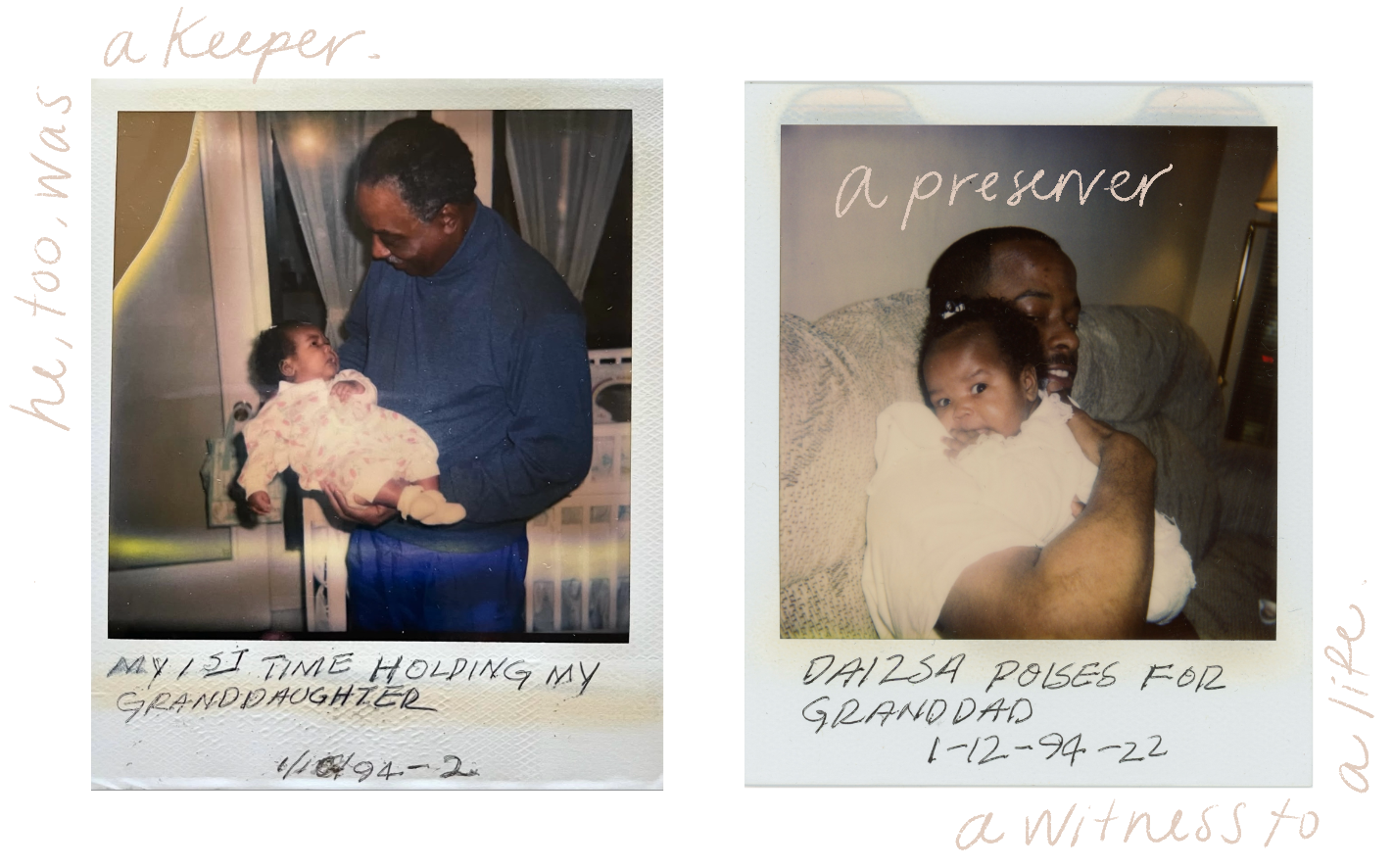Collection as Inheritance
Memory-keeping has always been intuitive for me. There been a consistent call within to document. Since childhood, I’ve instinctively reached for a camera, a journal, a scrapbook – finding ways to collect memories before I had language for why it mattered. Over time, that impulse became less of a hobby and more of a practice – something sacred and deeply embedded in how I move through the world.
I never stopped to consider where I had learned to value such a practice. Not until grief arrived at my front door, following the loss of my grandfather. His passing forced me to take a look back generations – to my ancestors whose lives were meticulously documented through photographs, handwritten letters, newspaper clippings and 8mm home videos. Many of the items left to collect dust; tucked away in basements or hidden in shoeboxes and drawers.
For the past year, I’ve been going through what my grandfather left behind. His notes, his photos and small keepsakes – everyday things that, taken together, reveal the care he gave to remembering. I began to see that he, too, was a keeper. A preserver. A witness to a life.
The late great collector Arturo Schomburg’s library was known to have “manifested the idea of Black history as inheritance – material upon which we can base our future.” What began as a process of mourning and grieving for me turned into one of discovery. Sorting through what my grandfather held onto felt less like an obligation and more like receiving something he meant for us to find.
It’s true that encountering what a loved one has left behind can feel overwhelming. It asks us to make choices: what to keep, what to let go. I’ve come to see things differently. This isn’t just sorting through things – it’s participating in legacy and honoring what they chose to preserve. Continuing the practice of collecting and tending to what remains has been an honor. And in that way, it is an inheritance.





